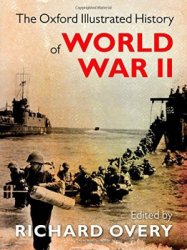The Paris Peace Conference did not achieve immediate success, and fighting continued, although at a somewhat slower pace, throughout the next four years. The Vietnam War became an issue during the 1968 U. S. presidential campaign, won by Richard M. Nixon, who announced that he had a program to end the Vietnam War called "Vietnamization." Apparently, he meant gradually to withdraw U. S. troops. The South Vietnamese would have to fight on their own.
With the remaining U. S. troops in Vietnam, Nixon decided to launch a major offensive against Vietnamese forces hiding in Cambodia in April, 1970. This offensive weakened neutral forces in Cambodia and ultimately assisted the rise of indigenous Cambodian communists called the Khmer Rouge. Led by a radical agrarian communist named Pol Pot, the Khmer Rouge takeover of Cambodia ultimately led to the deaths of hundreds of thou-sands—if not millions—of Cambodians.
The U. S. offensive only strengthened domestic opposition to the Vietnam War in the United States. The Paris Peace Talks continued throughout the first Nixon term, finally resulting in a January, 1973, agreement providing for a complete U. S. military withdrawal and a cease-fire between the communists and the South Vietnamese.
By March, 1973, the last American combat troops left Vietnam. The cease-fire quickly broke down, with each side accusing the other of violating its terms. The North Vietnamese apparently hoped the South Vietnamese would collapse easily, but this did not happen. The South held out in low-level fighting for the next two years.
In early 1975, the North Vietnamese felt strong enough to launch a major offensive. South Vietnamese resistance collapsed quickly, and the North Vietnamese army conquered the south. On April 28, 1975, South Vietnamese president Nguyen Van

U. S. soldiers leaving Vietnam in 1973. (Library of Congress)
Thieu resigned and fled the country. By April 30, U. S. military helicopters were evacuating the remaining Americans off the roof of the U. S. embassy in Saigon, the capital of South Vietnam. The North Vietnamese stormed the South Vietnamese government offices, and the Vietnam War ended.




 World History
World History









